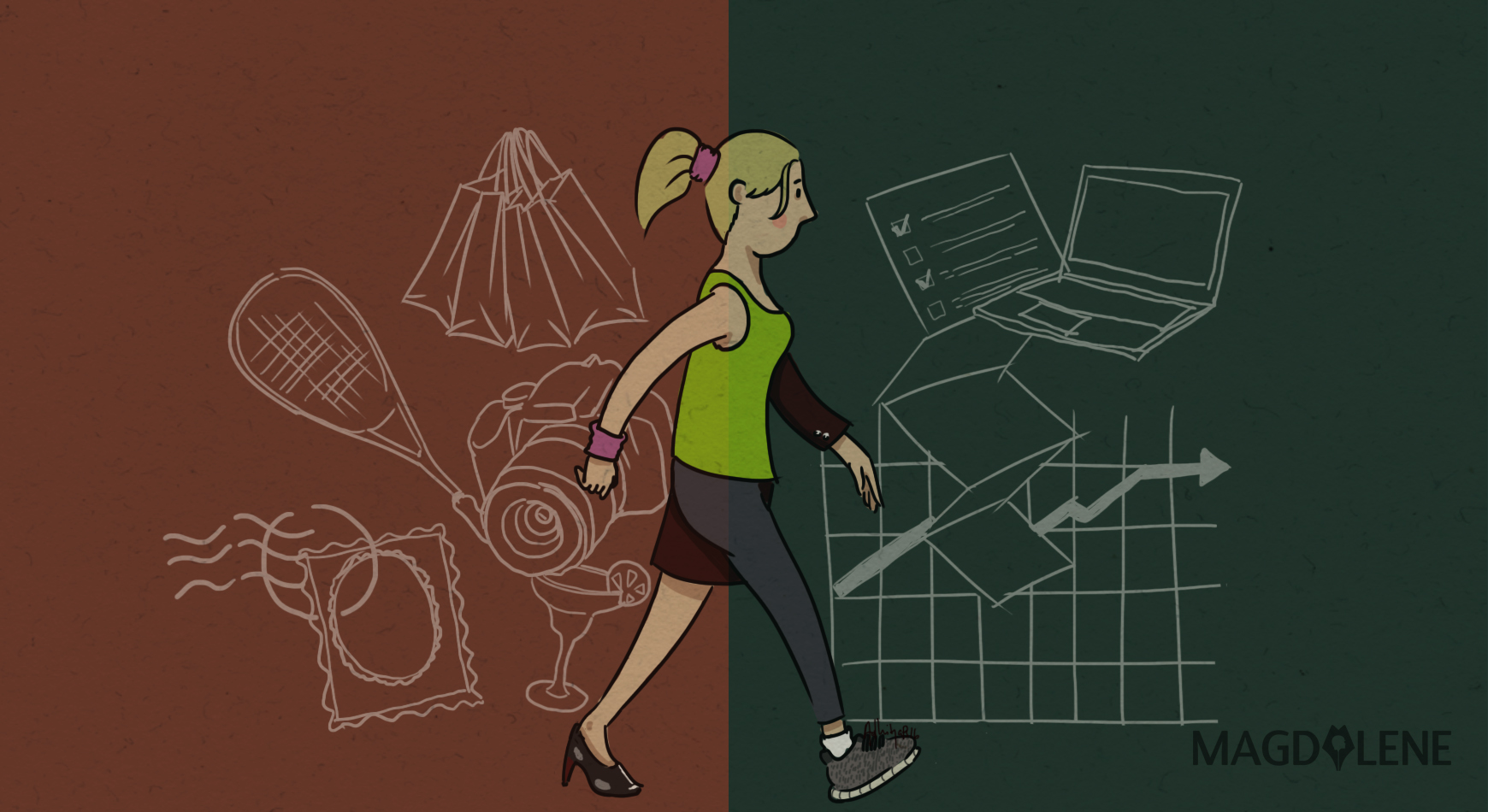When I was 14 some random seniors said that I was ugly when I walked past them, apparently oblivious to the fact that I could hear them. When I said I was planning on continuing school for my master’s degree after graduation, some people warned me that I would never marry anyone if I was too smart. When I was in college, a lot of girls relentlessly talked about being tired of all the researches, essays and tests that they had to do, and would rather marry a rich guy.
I may be overreacting, but to me all these seem irrational. It also make wonder: what makes a girl worthy? Since we were kids, we have been told that we can excel at anything we do even in a male-dominated world. We can learn taekwondo, ride an F1 car, or even fly to the moon if we want. We could be the winner of any competition.
It all seemed encouraging until I entered pre-adulthood and realized that no matter how hard you try to succeed, you can never be as valuable as the beautiful girls. I started reading journals about gender studies, and discovered how painful yet undeniable the reality is.
On her TEDtalk author and filmmaker Jean Kilbourne linked this reality to the portrayal of women in the media. She has been doing research on female objectification for 40 years. She demonstrated how humiliating the content of the advertising that uses women to attract audiences is. Women are always treated as objects and the images of women must fit these criteria: white skin, thin body, full lips, among others.
The media constructs the “ideal beauty” and girls and women who cannot live up to this ideal are not considered as beautiful. Advertisement encourages us to look pretty by all means necessary, whether with a lot of makeup or being on all sorts of diets.
Sometimes people don’t recognize that the women whose images we’re accustomed to are not real. They have been photoshopped – and the models have to endure constant starvation to maintain their bodies. But we believe in them anyway and try to achieve that kind of beauty because the message insists that nothing matters except your physical appearances. This focus on physical appearance has led to a host of problems, from depression, gender stereotypes, degradation of cognitive abilities, lower self-esteem, to eating disorder.
Every time I watch TV show or the movie, or whenever I read a magazine. I always wonder why there women are often represented as young, beautiful, but dumb. They can’t decide for themselves or solve problems by herself. The women are always dependent on the men and the men always fall for that kind of women. Think Bella in Twilight, or Penny on The Big Bang Theory. They message is you’re not valuable if you’re not pretty and owned by somebody.
Here’s a breakdown of a typical advertisement: 1. An “unattractive” woman hoping to know a cool guy gets unnoticed, 2. Uses cosmetics or a treatment to look “pretty”; and, 3. The guy will notice her because she’s transformed into a “prettier” woman. Almost all cosmetics products, shampoo, cologne, and clothes use this pattern as magnet to attract customers.
Why does this sick method work out for women? Because we humans want to feel worthy. Unfortunately, some interpret “worthy” for a women as being willingly subordinated.
This could be the root that causes women falling behind men in workplace. Facebook COO Sheryl Sandberg writes in her book Women, Work, and the Will to Lead: “Success and likeability are positively correlated for men and negatively for women. When a man is successful, he is liked by both men and women. When a woman is successful, people of both genders like her less.”
Hence we are told not to be too intense, to lower our voices. We are questioned for having big ambitions, when we’re “needed” at home.
For me, it’s never about material possession, power, or domination. It’s about the fact that I, as a girl, have endless curiosity about science, and the eagerness to make use of it for analyzing human behavior and helping them to attain a satisfying life and to prove that they are always capable and worthy enough to be happy for who they are.
And I firmly believe my dream is just one of those infinite wishes every woman utters in her prayers every day. Because we are not the object, we are the actors. Never let that idea vanish from your mind.
Hana Adiningsih is currently a psychology student at Universitas Indonesia. The complexity of human mind always captivates her attention.








Comments